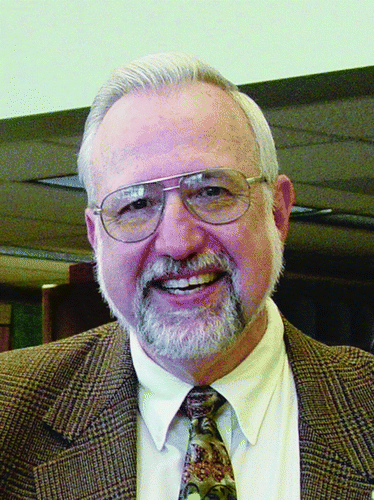Dr. Fred Kadlubar passed away on December 4, 2010. He had trained at the University of Dallas (B.S.), the University of Texas, Austin (Ph.D.), and the University of Wisconsin (McArdle Laboratory). From 1976 to 2006, Dr. Kadlubar was a research scientist and administrator at the National Center for Toxicological Research (NCTR) in Jefferson, Arkansas. In 2006, he moved to his most recent position, that of Professor and Chairman of the Department of Epidemiology at the Fay W. Boozman School of Public Health of the University of Arkansas Medical School in Little Rock. He also served as Director of Research in the Winthrop P. Rockefeller Cancer Center Institute.
Fred Kadlubar's training was in biochemistry and chemical carcinogenesis, having worked with Professors Dan Zielger and then James and Elizabeth Miller. These themes continued with him throughout his research career, and he built on them in characterizing DNA adducts and the enzymes involved in their formation. One of us (FPG) first met him during a visit to NCTR in 1981 and then published more than 20 papers with him. It seems appropriate to publish an obituary for Fred Kadlubar in a journal devoted to nutrition and cancer. Fred loved food and drink. He was an avid outdoors person and loved to hunt and fish with his sons, Ben and Stephen. Fred was also a passionate scuba diver and loved to travel.
Some of Fred's most important work involved aromatic amines, carcinogens formed in tobacco smoke, and heterocyclic amines, carcinogens produced in burned meat and other cooked foods. He remained an excellent chemist and expanded his work from biochemistry to molecular epidemiology. He established methods to metabolically phenotype individuals for N-acetyltransferase and cytochrome P450 1A2 activity, two key enzymes involved in the genotoxicity of aromatic amines and heterocyclic amines. He also explored the genetic basis for the interindividual variability in the levels of expression, activity and function of these enzymes, and the impact on cancer risk. Fred was also keenly interested in the potential chemopreventive effects of constituents in foods and beverages against carcinogens. He studied the chemical mechanisms of food constituents and their interactions with reactive carcinogenic intermediates, as well as the biochemical mechanisms that dietary constituents exerted on the modulation of enzymes involved in the bioactivation or detoxication of carcinogens. He published numerous articles on chemoprevention. At the time of his death, Fred was actively conducting research on the chemoprotective effects of phytochemicals and dietary supplements against heterocyclic amines in humans.
Fred Kadlubar was a founder of the Molecular Epidemiology Group of the American Association for Cancer Research. In addition to this society, he participated in many other facets of science. There was never an invitation to a scientific meeting that Fred could refuse, and he would travel worldwide to participate in these meetings. Oftentimes, Fred was the keynote speaker at these conferences. Fred had scientific collaborations throughout the United States, South America, the United Kingdom and Western Europe, South Korea, China, Japan, and Australia. Fred was a beacon. He attracted students and postdoctoral fellows, as well as established scientists, from all over the world to work with him in Arkansas. In fact, one of us (RT) left the beautiful vineyards, lakes, and snow-capped mountains of Switzerland to work with Fred at the NCTR in Jefferson, Arkansas.
Despite all of Fred's commitments, he loved to work at the lab bench when time permitted. One classical experiment in Fred's lab was DNA binding assays to examine carcinogen enzyme metabolism activities. Fred would insist that he conduct the syntheses of the carcinogenic intermediates, while his students and postdoctoral fellows would prepare reagents for the biochemical assays. One of his long-time associates at NCTR remarked that Fred's pace in the laboratory was akin to a brain surgeon taking off a Friday afternoon to play nine holes of golf. Fred was like a tornado in the lab, and he would get everyone energized. He had a truly unique style in the lab that will be greatly missed.
Fred's studies on biomarkers leave a legacy that will not be forgotten. Those who knew Fred Kadlubar will remember him not only as a no-nonsense scientist but also a wonderful mentor and collaborator, a generous individual, a humorous fellow, and a good friend. We miss him, but we also realize that he has left a legacy in his science.
